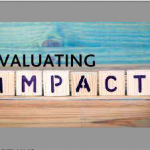Applying SCRUM methodology to Erasmus Plus projects
If you are a project manager, you have probably heard of methodologies like Lean, Kanban and, most likely, Scrum. The Scrum methodology is inserted in the organizational philosophy of Agile and is widely used in the technological sector, for example, in companies dedicated to web or app development.
However, in this article we will explain to you how many aspects of Scrum are applicable to Erasmus Plus projects and can help you optimize efforts and time.
Advantages
To start, using Agile is expected to reduce the risk of failure due to its adaptable capacity and to provide results in very reduced time spams.
How is this possible? Because in Scrum, the objectives of the project are not general, but subdivided in smaller frames (sprints) of around 2 weeks (10 working days). The length of these sprints can be different from group to group, but the idea is to ensure constant review and flexibility to the circumstances. If priorities change along the way, it is easier to makes changes when these do not disrupt the general plan, as they were already expected.
Important meetings that guide the work are sprint planning (when objectives are set), sprint review and sprint retrospective (when the work done is analyzed). There are also daily meetings called “daily scrum”. Each member presents what they did the day before supporting transparency and shared responsibility.
The Scrum Team
The team is usually formed by professionals with mixed competences who are able to keep a constant work rhythm autonomously. In other words, the group is self-organized, they decide what they do each day and how to do it.
Nevertheless, this does not mean that they are not team. If a problem arises, everyone stops until a solution has been found. In order for this to work, there must be high levels of trust and motivation.
Furthermore, the leader or facilitator (scrum master) is there to make sure that everything is going as planned. Do not confuse the scrum master with “the boss” though, he does not decide what others do, he just provides support to the general organization.
Erasmus Plus Projects
How does this apply to project managers inside Erasmus Plus? Since these projects provide such long time-spams (many of them are at least 1 or 2 years), it is unlikely that the organization originally prepared will be valid for the entire duration. For this reason, we believe that implementing a flexible approach like Scrum can be extremely helpful.
Start by giving more responsibilities to your team and see how they react. They should choose a set of tasks to do in every sprint and compromise themselves to achieve them. After a while, the team should be able to get the work done without anyone telling them, which will reduce the number of responsibilities that you as a leader have. International meetings, local activities and production of reports and materials can be certainly fit the methodology.
Online platforms, such as TRELLO, can also be a useful tool to provide a visual representation of the organization, especially if the group works remotely.
Let us know in the comments what you think about Scrum and, if you want to collaborate with us, you can do so through this link.


